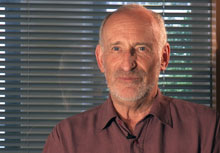1.3 Functional grammar and its uses
Another way of understanding the importance of grammatical choice is to see it in terms of how language is functioning in any given text or interaction. For example, depending on the choices made in the courtroom case in Activity 3, language can function to intimidate and exercise power over a witness (or to reassure and empower them) as well as seeking information. This emphasis on function rather than form gives rise to the terms functional grammar and Systemic Functional Linguistics (known as SFL for short). A functional perspective holds that language looks the way it does because of the functions it fulfils, in other words, how we use it to make meaning. This perspective focuses on how forms perform a range of meaning functions, rather than on form in itself. The next activity explains further what this approach can offer.
Activity 5: The value of a functional perspective on grammar
In this activity you will listen to two brief extracts from an interview with the late Geoff Thompson, another well-known educator and researcher in the field of SFL. He is widely known and recognised for his work on functional grammar, and is author of the book Introducing Functional Grammar (Thompson, 2014).

As you listen, consider the associated questions.
1. What is formal grammar? What is functional grammar? How do they differ?
2. In which other professional areas, apart from education, does Geoff suggest an increased knowledge of grammar might be put to use?
Discussion
- To Geoff, formal grammar is the type of grammar that some people know about from school, which is often to do with being able to identity nouns and verbs, and breaking up a sentence into its parts. Functional grammar, by contrast, Geoff sees as having to do with understanding not just the constituent parts of the sentence but also what the sentence as a whole is doing.
- Geoff mentions the importance for advertisers, doctors and translators, among others, of increasing their understanding, not only of sentence-level grammar but also of meaning making through language as a whole. Advertisers, for instance, are able to manipulate language and persuade customers that they need a given product; doctors need not only to have medical knowledge but also to interact effectively and empathetically with the patients they are diagnosing; translators need to have an understanding of how different languages function in order to be able to translate between them. Geoff also relates how forensic linguists have used their linguistic knowledge to show how some historic alleged confessions from crime suspects were almost certainly tampered with by the police.
